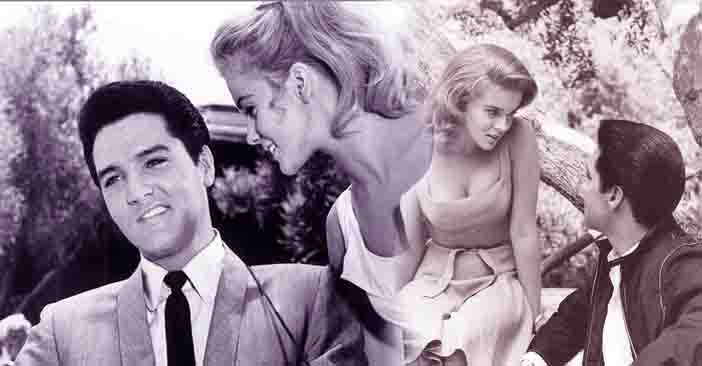
In Elvis, a new 2022 film that theatrically follows Presley's complicated rise to fame, "Dr. Nick," as he was known, appears a totally willing participant in Presley's spiraling physical condition. (UCR)
Nichopoulos became a key member of the Memphis Mafia, the friends of the King who accompanied him on tour
In the movie, Dr. Nick (Tony Nixon) is shown to be happy to help in any way possible, even as his patient's evident struggles with addiction grow worse through the 1970s. At one point, Presley (Austin Butler), fed up with it all, fires his manipulative manager, Colonel Tom Parker (Tom Hanks), who reminds him that he still owes him millions of dollars, essentially trapping Presley in the arrangement. His next phone call is to Dr. Nick, looking to numb the pain. Presley's untimely death at the age of 42 is depicted next.
There’s a famous photograph of Elvis Presley shaking hands with Richard Nixon in the White House. It’s a baffling picture with an even crazier story. Elvis, during that meeting, told Nixon, “I’m on your side.” He claimed he’d been studying drug culture and communist brainwashing. Drug abusers and The Beatles, the two agreed, were spreading an anti-American spirit across the country.
Elvis had a love for what were then called "downers": barbiturates, sleeping pills, painkillers, the combination of which will induce a sleepy, calm euphoria.
In addition to the ten drugs found in his system at the time of death, Elvis was known to have tried Dilaudid, Percodan, Placidyl, Dexedrine (a rare "upper," then prescribed as a "diet pill"), Biphetamine, Tiunal, Desbutal, Escatrol, Amytal, Quaaludes, Carbrital, Seconal, Methadone, and Ritalin.

It’s hard to imagine one of the biggest figures in rock ‘n roll being so strongly against drugs—mostly because he wasn’t. Elvis, at this point, was already heavily addicted to prescription drugs. He was at the White House because he wanted to do more drugs.
But to deem the real life Nichopoulos, who died in 2016, nothing but a "Dr. Feelgood," isn't exactly accurate. The real life relationship he had with Presley was more nuanced than that.
Born in 1927, Nichopoulos, who grew up in Anniston, Ala., enlisted in the Army immediately after high school and served in Germany in the Army Medical Corps. He received his bachelor's from the University of the South in 1951, and, eight years later, his M.D. at the Vanderbilt University School of Medicine. In 1967, Nichopoulos was working with several other doctors at a group practice in Memphis when he was first called upon by Presley to treat saddle sores (the result of too much horseback riding).
Nichopoulos treated Presley a handful of times over the next few years, but it wasn't until 1970 that he was offered the position of Presley's full-time doctor and became a near-constant figure in Presley's life. "At times I was his father, his best friend, his doctor," Nichopoulos said to The Daily Beast in 2009. "Whatever role I needed to play at the time, I did.”
This did, in fact, mean prescribing large quantities of medications ranging from sleeping pills to painkillers and a lot in between. Nichopoulos was also tasked with prescribing medications for various members of Presley's entourage and band, which meant, of course, that medications were being distributed in more directions than just Presley's. This during an era in which the deeper dangers of opioid drugs was not nearly as widely acknowledged as it is today.
Yet, Nichopoulos could hardly be considered the sole cause of Presley's demise. Even if the doctor resisted Presley's demands, the singer would often seek out another source to obtain the drugs. Addiction took a grueling toll on Presley as it would have anyone else, blinding him to the realities of what was happening to himself physically and emotionally.
"It's hard to convince somebody what's right and wrong or what they need to do," Nichopoulos said to The Guardian in 2002. "It's hard when you've got somebody that thinks they have all the answers and no matter what you throw at 'em, they've got answers for you."
